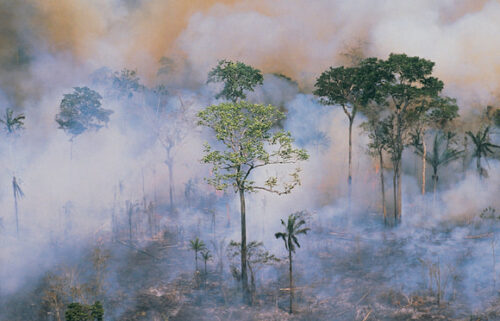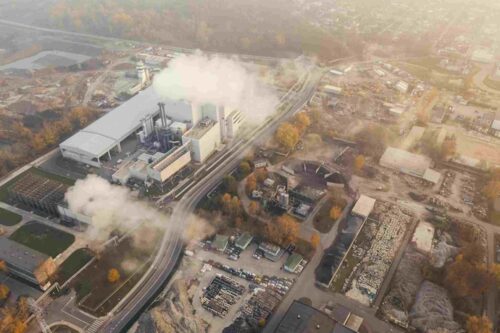
Noncommunicable Diseases Air Pollution
Improving Indoor Air quality Might Save Your Life. Yale Climate Connections.
• News
WHAT IS PLANETARY HEALTH?
Humanity’s impact on Earth’s natural systems is affecting the quality of the air we breathe.
Air pollution is attributed to natural sources like dust storms, and human activities like vehicle emissions, industrial processes, burning wood, and power plants. Inhaled particulate matter (e.g., PM2.5) can penetrate deep into the lungs, causing respiratory issues, heart disease, and other health problems, especially for vulnerable populations. Biomass burning for agriculture in places like equatorial Asia is driving sharp increases in particulate air pollution and associated morbidity and mortality. In some regions, air pollution has become so pervasive that it obscures the sun, altering regional weather patterns, reducing agricultural yields, and accelerating glacial melting.
In addition to particulate pollution, warmer temperatures associated with climate change increase the formation of tropospheric ozone, a main constituent of smog and contributor to cardiorespiratory disease. Warmer temperatures and higher atmospheric carbon dioxide concentrations are associated with longer pollen seasons and increased pollen production, intensifying allergic respiratory diseases, such as asthma.
8M Deaths per year
One modelling study concluded that fine particulate and ozone air pollution contribute to more than 8 million all-cause deaths per year.
Air-pollution deaths are substantially more likely in low- and middle-income countries.
Browse the resources below to learn more about air quality and ways to protect the air we breathe.
“… pollution control is highly cost-effective and, because pollution, climate change, and biodiversity loss are closely linked, actions taken to control pollution have a high potential to also mitigate the effects of those other planetary threats.”
– Lelieveld et al. Pollution and health: A progress update
Noncommunicable Diseases Air Pollution
• News
Air Pollution Research and Evaluation
• Research & Reports
Noncommunicable Diseases Air Pollution
• News
Air Pollution Built Environment and Urbanization
• Research & Reports
Air Pollution Climate Change
• News


